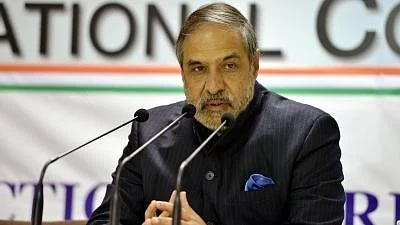The Parliamentary Standing Committee on Home Affairs presented its 230th report on “atrocities and crimes against women and children” in the Rajya Sabha on Monday, 15 March.
Led by Congress MP Anand Sharma, the report indicated a “sudden spurt in domestic violence and trafficking of women and children” during the COVID-19 lockdown.
Attributing the rise in violence to disruption in economic activities, the committee proposed certain recommendations to tackle the rising cases.
Here are some key recommendations that have been proposed, among other measures:
Zero FIRs and Forensic Examination
The report submitted by the panel asked for the introduction of ‘Zero FIRs’ in all states and UTs, as well as development and promotion of online FIRs.
The panel notes that “cases of crimes against women and children are not getting registered at the police station, and in time, and is one of the main reasons for delay and denial of justice to the victim and the family.”
If there is a delay in registering the FIR by the victim or the family, the panel asked the police to maintain a written record of the reason for the same.
The Committee urged the use of “timely and proper medical and forensic examination in rape cases”, as it is crucial in the collection of evidence, investigation and trial. It strongly recommended that, “The Ministry of Home Affairs should take steps towards setting up at least one forensic laboratory in every state capital in the country, on priority.”
Safety Recommendations
The panel recommended setting up of a three digit pan-India helpline number for all women in distress who can access the helpline from anywhere in the country.
The report urged the installation of CCTV cameras, GPS, panic buttons, and the likes in public transports, as a key measure to increase safety.
It recommended safety in public transport, as a key measure to reduce crimes against women.
POCSO
The committee noted that the cases registered under Protection of Children from Sexual Offences (POCSO) Act during the last three years (2017-19) were 31,668, 38,802, and 46,005 respectively.
The report appealed to set up the remaining fast track courts, since out of 1,023 fast track special courts, only 597 have been set up, including 325 exclusive POSCO courts that are operational.
Lack of Representation in Law Enforcement Agencies
The panel recommended that public prosecutors be provided law enforcement agencies to ensure proper representation of the investigation in court.
The report noted with disappointment that women only constitute 10.30% of the police forces, and noted that this fell short of the MHA mandate of 33% representation of women in the force. The report recommended increasing all women police stations in the country as well.
Asking for the police to conduct ‘decoy operations’, noting that it would lead to the registration of more cases. The panel observed that there is an “abysmally low conviction rate in crimes against women and children, which also shows a serious mismatch between the measures adopted and their implementation”.
The report recommends more stringent use of the ‘Online Investigation Tracking System for Sexual Offences (ITSSO)’, an analytical tool, which allows enforcement agencies to monitor police investigations within two months in the case of sexual offences under the Criminal Law (Amendment) Act, 2018.
Nirbhaya Fund
The report noted that the Nirbhaya fund is being underutilised, and only 33% of the Rs 9,288.45 crore fund is being used. The fund is used to implement initiatives aimed at enhancing the safety and security of women in the country.
The report noted that the Ministry is diverting funds to other schemes, and recommended that the funds be used for their original purpose.
On Media Coverage
The committee observed the need for “restraint and sensitive reporting” in the case of crimes against woman and children. It noted that the sensationalising of cases leads to “revictimisation of the survivors and embarrassment of their family”.
There should be a higher focus by the media on “publicising the penalty/punishment imposed on the culprits than the incidents of crime. This will certainly not only create fear of law but will also act as a deterrence.”
The report recommended the MHA to enforce “non-disclosure of identities of victims and provide protection to the victims and families”.
(At The Quint, we question everything. Play an active role in shaping our journalism by becoming a member today.)
